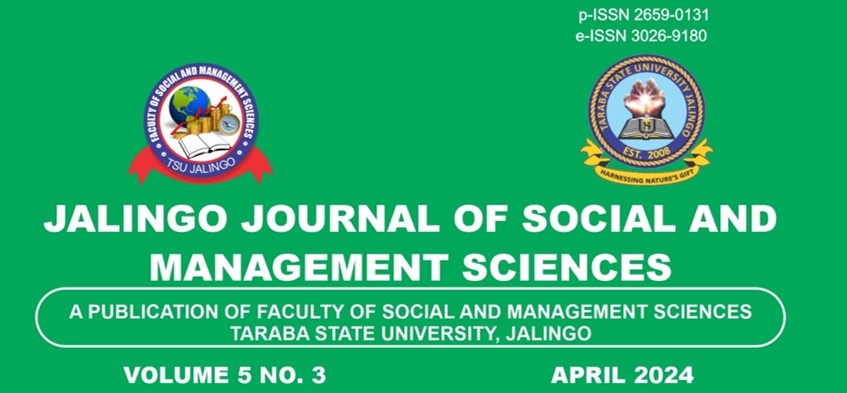Effects of Economic-related Corporate Social Responsibility Activities on Sustainable Livelihood of Selected Communities in Gombe State, Nigeria
Keywords:
Corporate social responsibility, development projects, Sustainable livelihood, GombeAbstract
Many communities in the Third World, especially Nigeria, are easily drown into a downward cycle of risks and vulnerabilities because government efforts in community development are not sufficient. Except for the private sector's support in alleviating hardship in community livelihoods, achieving long-term sustainable development will be difficult to accomplish. This study examined the effects of corporate social responsibility (CSR) on sustainable livelihood of selected communities in Gombe State. The study employed descriptive research design. The study target population was 25,479 individuals in Gombe State, drawn from 19 corporations and 22 selected communities. The total sample size for the study was 205 respondents. A multistage sampling technique was used to select the 205 respondents for the study. In collaboration with Gombe State Ministry of Trade and Industries and Ministry of Environment and Forest Resources, 22 communities mostly affected by climate change and 19 viable corporations were purposively selected. Purposive sampling technique was also used to select 110 respondents, 5 each from the 22 selected communities and 95 corporation’s respondents, 5 each from the 19 sampled corporations. Data for the study were collected through structured questionnaire and were analysed using cross-tabulation chi-square test. The findings of the study showed that corporations’ economic-related CSR activities contributed significantly to the sustainable livelihoods of the communities, especially in the area of capacity building in agriculture, education, vocational/skills acquisition, employee engagements and community development projects such as construction and renovation of educational facilities, clinics, hospitals, and roads among others. The study recommended that, the selection of beneficiaries for capacity building initiatives and community development projects should be based on needs assessment. People living with disabilities should be considered in CSR while tax holidays, grants, or recognition, can be designated for corporations executing CSR projects that improve the livelihood of the communities.

Downloads
Published
Issue
Section
License
Copyright (c) 2024 JALINGO JOURNAL OF SOCIAL AND MANAGEMENT SCIENCES

This work is licensed under a Creative Commons Attribution-NonCommercial 4.0 International License.
